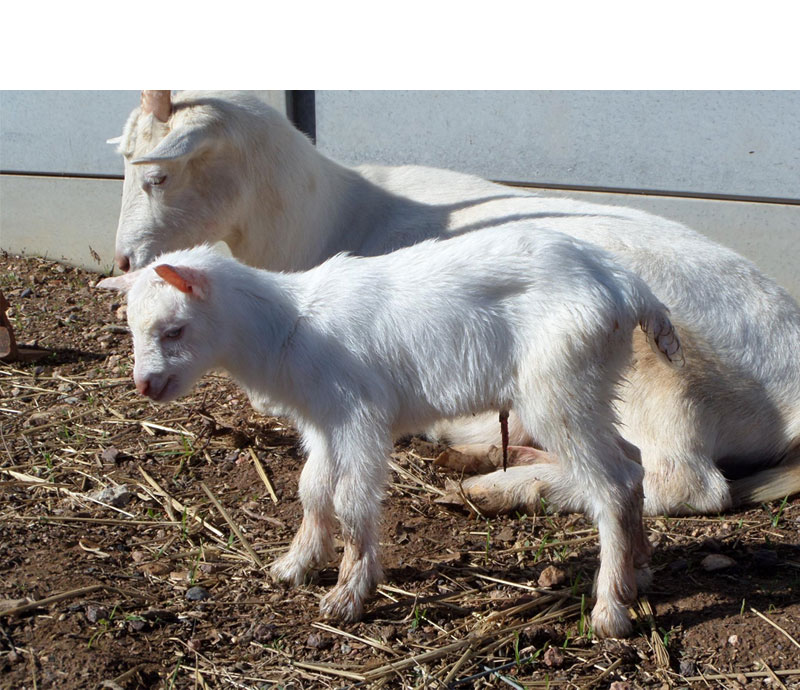
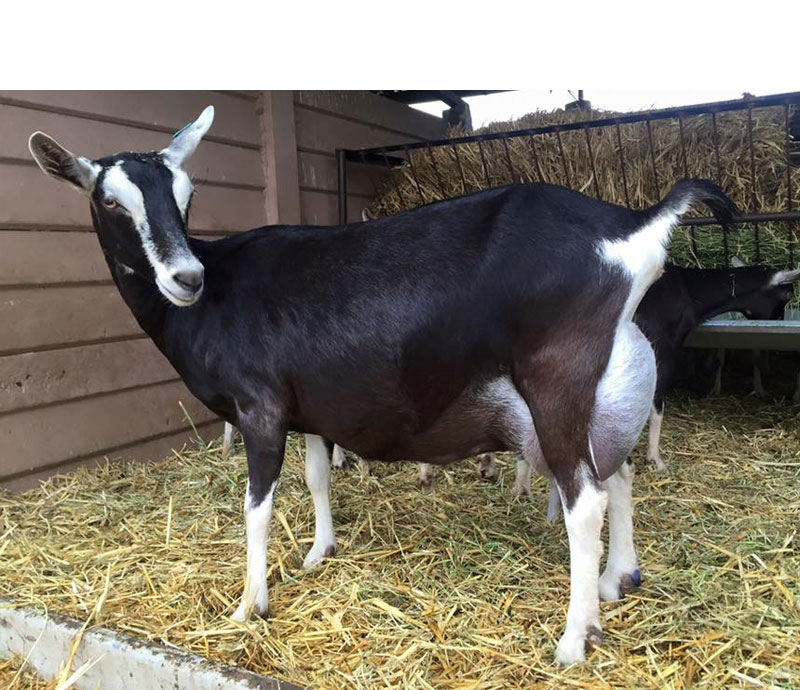

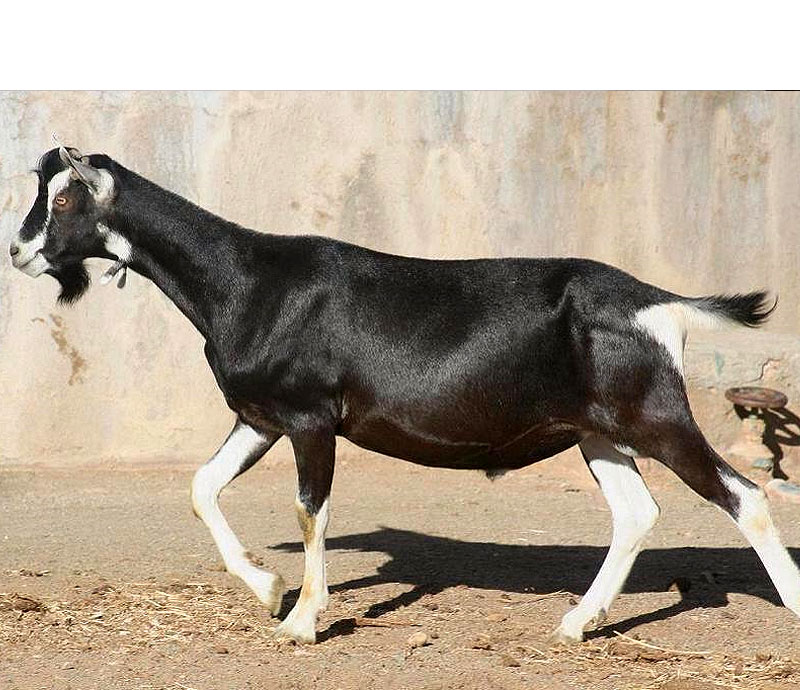
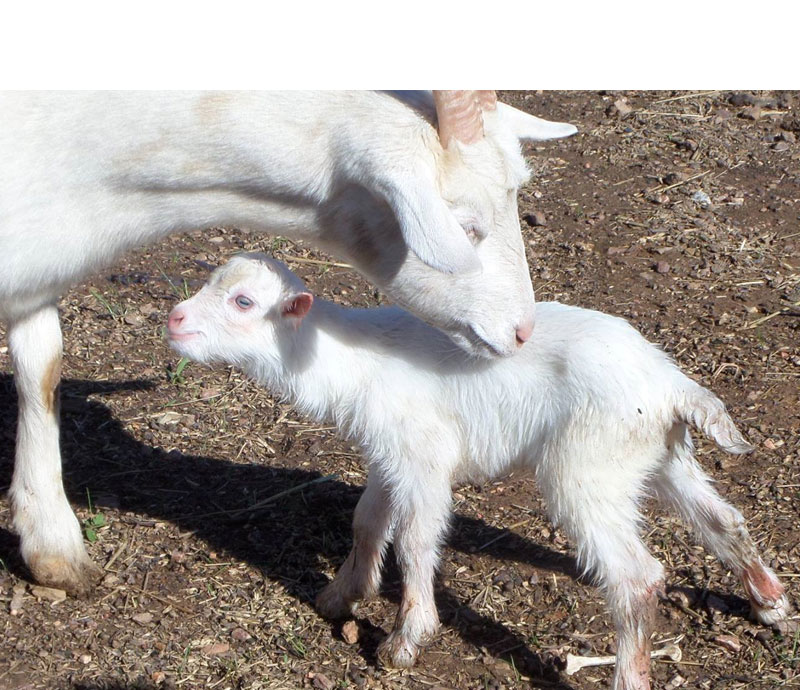
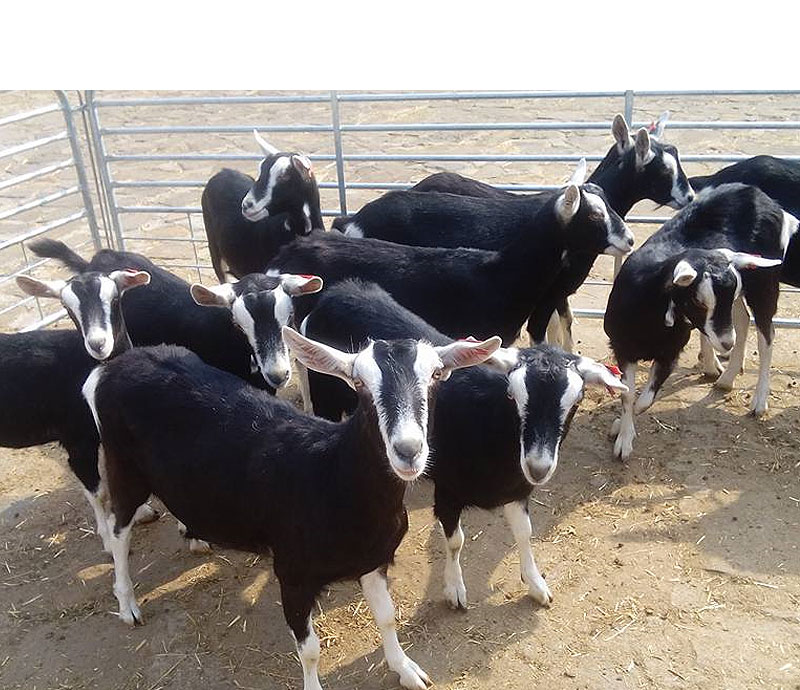
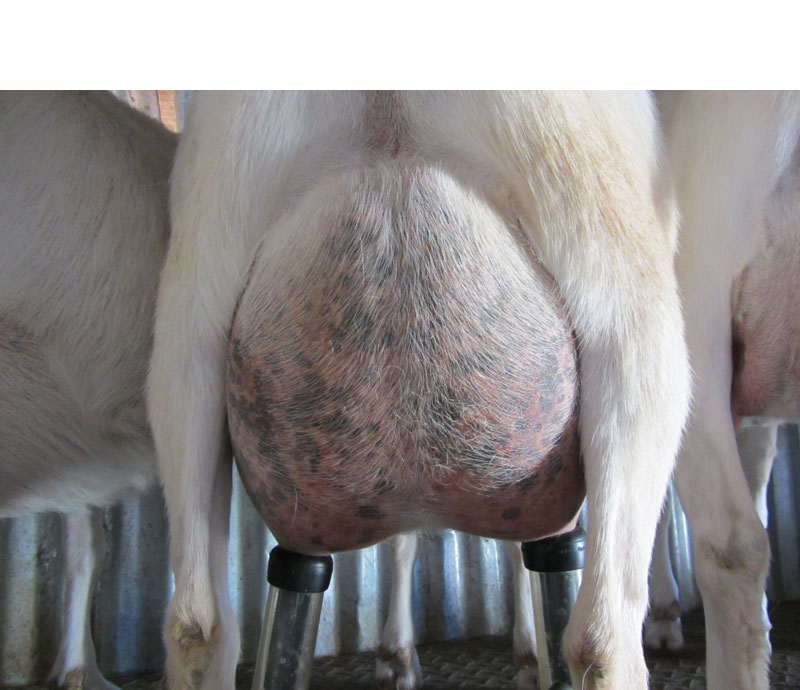
Goat Milk is as close to perfect food as possible in nature. Its chemical structure is amazingly similar to mother’s milk. It is a complete protein containing all the essential amino acids without the heavy fat content and catarrh (mucus) producing materials of cow milk.
Goat milk offers superior digestibility to cow milk, due to the following factors:
The lactase enzyme provides for the digestion of lactose, or milk sugar. Persons who do not possess this enzyme are lactose intolerant. Goat milk contains less lactose than cow milk, and people can generally tolerate goat milk better than cow milk.
Whether goat milk can be tolerated better than cow milk will depend on the specific protein involved in the allergy. Most people with a cow milk protein allergy are allergic to b-lactoglobulin. This protein is also present in goat milk and does not offer these people an alternative. It is worth, however, trying goat milk as an alternative to cow milk, in consultation with your doctor.
Drinking goat milk results in the production of less mucus than when drinking cow milk. This can provide relief to people suffering from respiratory complaints.
Fresh goat milk has a mildly tangy flavour. This flavour is due to the presence of short-chain fatty acids: Capric, Caprylic and Dcaproic acid. Fresh, correctly treated goat milk usually has a very neutral flavour.
The composition of goat milk does not differ greatly from that of cow milk. Both kinds contain about 13% dry solids. Milk sugar, also known as lactose, is the main constituent of goat milk. The other main ingredients of goat milk are milk fat, protein, and minerals. One hundred ml of goat or cow milk has a calorific value of about 280kJ (67 kcal). The composition of the milk depends largely on the breed of goat and the season. In the summer the milk yield is high, and the fat and protein contents are low. Conversely, in the winter the milk yield is low, and the fat and protein contents are higher.
Lactose is the most important carbohydrate present in milk. The lactose content of goat milk is about 10% lower than that of cow milk.
Milk protein is comprised of about 80% caseins and 20% whey proteins. This is applicable to both cow milk and goat milk. The caseins are present in the form of micelles: these are large aggregates of protein and calcium phosphate. The number of small micelles is much greater in goat milk than cow milk.
The fatty-acid composition of goat milk exhibits substantial differences from that of cow milk. Goat milk fat contains a considerable amount of short-chain and medium-chain fatty acids. The seasonal variation in the fatty-acid composition is lower than that of cow milk. This is due to the relatively consistent diet fed to goats. Goat milk contains a far larger number of small fat globules than cow milk.
Goat milk has a cholesterol content of between 10 and 15 mg/100 g milk (depending on the fat content), comparable to the levels in cow milk.
Goat milk contains more vitamin A and D than cow milk. The folic acid and vitamin B12 content is lower than that of cow milk.
The composition of minerals in goat milk and cow milk are different in a few ways. The potassium, copper and manganese content of goat milk are a little higher than those in cow milk. Goat milk contains a little less zinc than cow milk.